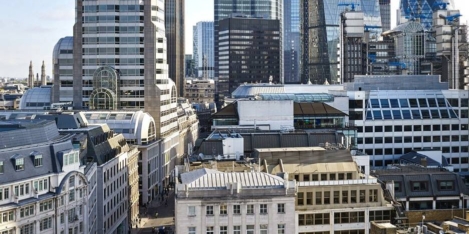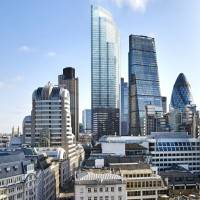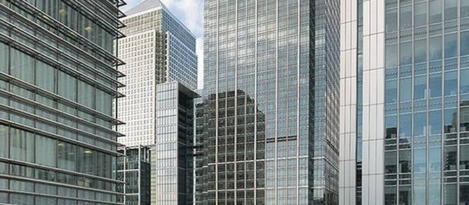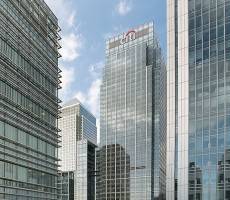August 5, 2016
Corporate real estate sector needs to step up to meet new challenges 0
 The corporate real estate profession will be influenced, disrupted and transformed in the years ahead by a powerful combination of forces that are re-shaping business strategy and operations, consumer preferences, and how and where people want to live and work, according to a new report from CoreNet Global. The Bigger Picture: The Future of Corporate Real Estate draws on the expertise of more than 30 thought leaders to provide insights from multiple perspectives beyond CRE: technology and the internet of things; risk mitigation; cyber security; environment, energy and sustainability; corporate social responsibility; the global economy; people, talent, wellbeing; and the future of cities. The report argues that CRE must deliver greater value in this dynamic business environment and a world that is changing rapidly, is more interconnected than ever before, is constantly disrupted by technological innovation, and is replete with both risks and opportunities.
The corporate real estate profession will be influenced, disrupted and transformed in the years ahead by a powerful combination of forces that are re-shaping business strategy and operations, consumer preferences, and how and where people want to live and work, according to a new report from CoreNet Global. The Bigger Picture: The Future of Corporate Real Estate draws on the expertise of more than 30 thought leaders to provide insights from multiple perspectives beyond CRE: technology and the internet of things; risk mitigation; cyber security; environment, energy and sustainability; corporate social responsibility; the global economy; people, talent, wellbeing; and the future of cities. The report argues that CRE must deliver greater value in this dynamic business environment and a world that is changing rapidly, is more interconnected than ever before, is constantly disrupted by technological innovation, and is replete with both risks and opportunities.






 The UK commercial property sector is now larger than at any time since before the last recession, claims a new analysis from the Investment Property Forum. It has risen nearly 50 percent since its lowest point in 2009 and is now valued at £871 billion, an increase of around 11 percent. The amount of stock actually shrank last year, according to the study, with the increase in overall value arising from price rises. The previous highest valuation the IPF puts on the market was £865 billion in 2006. All is not good news however as a second report from the same organisation which explores sentiment in the market following the Brexit vote confirms there is a great deal of uncertainty in the market. This is particularly acute in the London market which makes up over a third of the nation’s total and is increasingly dominated by foreign owners who may have a negative response to the UK’s vote to leave the EU. Intriguingly, the report found that total floorspace marginally declined over 2015 and has only increased by 0.9 percent since the market high of 2006.
The UK commercial property sector is now larger than at any time since before the last recession, claims a new analysis from the Investment Property Forum. It has risen nearly 50 percent since its lowest point in 2009 and is now valued at £871 billion, an increase of around 11 percent. The amount of stock actually shrank last year, according to the study, with the increase in overall value arising from price rises. The previous highest valuation the IPF puts on the market was £865 billion in 2006. All is not good news however as a second report from the same organisation which explores sentiment in the market following the Brexit vote confirms there is a great deal of uncertainty in the market. This is particularly acute in the London market which makes up over a third of the nation’s total and is increasingly dominated by foreign owners who may have a negative response to the UK’s vote to leave the EU. Intriguingly, the report found that total floorspace marginally declined over 2015 and has only increased by 0.9 percent since the market high of 2006.
 The changing energy demands of British cities are revealed in
The changing energy demands of British cities are revealed in 


 Businesses are ready to embrace the new era of robot workers, automation and artificial intelligence, according to a new report.
Businesses are ready to embrace the new era of robot workers, automation and artificial intelligence, according to a new report. 
 A rapidly ageing workforce is not just a challenge for Western economies. The government of China, the world’s second largest economy, has announced that it expects its workforce to decline by nearly a quarter (23 percent) between now and 2050 as the population ages and more and more jobs are automated. The Government is now considering raising the retirement age from 59 to 65 ahead of an anticipated sharp decline in the numbers of people of working age after 2030, according to the Ministry of Human Resources and Social Security. A spokesman for the ministry forecast a fall of 211 million people of working age to 700 million by 2050. China’s demographic challenge is mirrored in many countries but has its own characteristics thanks to its strict and controversial decades-long
A rapidly ageing workforce is not just a challenge for Western economies. The government of China, the world’s second largest economy, has announced that it expects its workforce to decline by nearly a quarter (23 percent) between now and 2050 as the population ages and more and more jobs are automated. The Government is now considering raising the retirement age from 59 to 65 ahead of an anticipated sharp decline in the numbers of people of working age after 2030, according to the Ministry of Human Resources and Social Security. A spokesman for the ministry forecast a fall of 211 million people of working age to 700 million by 2050. China’s demographic challenge is mirrored in many countries but has its own characteristics thanks to its strict and controversial decades-long 


 UK growth had already eased from around 3 percent in 2014 to around 2 percent before the EU referendum due primarily to slower global growth, but the Brexit vote to leave the EU is likely to lead to a significant further slowdown. UK GDP growth is forecast to decelerate to around 1.6 percent in 2016 and 0.6 percent in 2017 according to
UK growth had already eased from around 3 percent in 2014 to around 2 percent before the EU referendum due primarily to slower global growth, but the Brexit vote to leave the EU is likely to lead to a significant further slowdown. UK GDP growth is forecast to decelerate to around 1.6 percent in 2016 and 0.6 percent in 2017 according to 
 In a new report
In a new report 
 In March,
In March, 
















August 2, 2016
Seven workplace stories we like and think you should read this week 0
by Mark Eltringham • Architecture, Comment, News, Property, Workplace, Workplace design